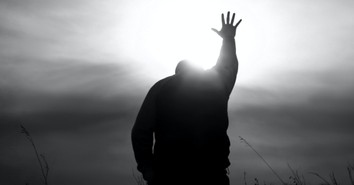Denominational Demise

As you are no doubt aware, the liberal leadership of both the Episcopal Church in the US (ECUSA) and the Presbyterian Church USA (PCUSA) have further alienated conservative orthodox Christians by their respective compromises related to the ordination of practicing homosexuals. Additionally, in a meeting two weeks ago, the House of Deputies of the ECUSA moved the church further away from an essential doctrine of Christianity by overwhelmingly refusing to even consider a resolution that affirmed Jesus Christ as the "only name by which any person may be saved." And to add insult to injury, the newly elected presiding bishop of the ECUSA, Katharine Jefferts Schiori, closed the convention by referring to "our mother Jesus" in her closing prayer.
The impending schisms between the worldwide Anglican community of more than 77 million and its 2.8 million American congregants - along with the fracture inevitable within the American Episcopal community - will be a tragedy of historic proportions.
Similarly, the PCUSA voted to give local congregations the power to allow homosexual clergy - a compromise position which sought to avoid a denominational prohibition of ordaining homosexuals.
In both cases (and these denominations are by no means alone in their struggle for orthodoxy), there has been a steady progression of theological and moral compromise among the prevailing denominational leadership. That is not to say that there are not bible-believing Christians in these denominations; certainly not! It merely means that theologically liberal individuals have risen to the highest ranks of leadership.
Both of these examples should serve as cautionary tales to the rest of the Church. Unfortunately, there seems to be an attitude among some conservative denominations that these capitulations to such blatant liberalism "will never happen here." I think this is both naive and to some extent represents an institutional blindness to certain realities that should be raising alarm right now within these very same denominations.
When one looks to the next generation of professing Christians one must be seriously concerned about the future of the Church in America.
Last year, a four-year study led by sociologist Christian Smith of the University of North Carolina at Chapel Hill was completed involving more than 133 researchers and consultants. Smith reported the results in the book Soul Searching: The Religious and Spiritual Lives of American Teenagers. Smith emphasized that the material "is not just about teenagers. It speaks more broadly about the direction of American religion."
Surprisingly, the study reveals that according to teens themselves, religion remains a central influence in their lives. In fact, 82 percent were affiliated with a local congregation; 80 percent had few or no doubts about their beliefs in the past year and 71 percent "felt extremely or somewhat close to God," indicating a highly religious generation. However, the study also reveals that most teens have little or no understanding of historic orthodox Christianity. In face-to-face interviews, researchers found that many teens' religious knowledge was "meager, nebulous and often fallacious," and engagement with the substance of their traditions remarkably shallow. Most seemed incapable of expressing their beliefs and the difference they should make regardless of their denominational affiliation.
Many were so detached from the traditions of their faith, says the report, that they're virtually following a different creed in which an undemanding God exists mostly to solve problems and make people feel good. Truth in any absolute, theological sense, takes a back seat. This ambiguity and ignorance in terms of their actual beliefs was so overwhelming that the researchers were led to coin the phrase, "therapeutic, moralistic deism" to describe the actual belief and practices of most professing teens.
While the study did not attempt to identify the causes of this condition researchers did suggest that the problem was largely attributable to ineffective youth programs and "the relative religious laxity of their parents."
In addition, The Barna Group reports findings that support Smith's. George Barna noted, "less than one out of every ten churched teenagers has a biblical worldview. In other words, the result of their involvement at a church is that they can recite some religious facts, they made some friends, and they had fun. That's wonderful, but we also find that most of them have neither accepted Christ as their savior nor altered the basis on which they make their moral and ethical decisions in life."
So for those denominations that today think they are safe from those "liberal elements" that are presently tearing apart these mainline denominations think again. You may actually be growing the seeds of your denomination's own destruction right down the hall. What kind of theological influence do you suppose a generation with no theological and doctrinal knowledge will have?
If we hope to preserve orthodoxy and strengthen the Church then churches must again take seriously the Bible's admonitions to train our children. This means that we stop entertaining them, stop patronizing them by treating them like they're incapable of thinking, take their questions seriously and offer them solid arguments in defense of biblical truths that will stand up in the intellectual marketplace. Otherwise we will likely produce a generation of theological compromisers, unprecedented in terms of scale, that encompasses almost every denomination of the American Church.
View other recent entries on Michael's blog.
S. Michael Craven is the Founding Director of the Center for Christ & Culture, a ministry of the National Coalition for the Protection of Children & Families. The Center for Christ & Culture is dedicated to renewal within the Church and works to equip Christians with an intelligent and thoroughly Christian approach to matters of culture in order to recapture and demonstrate the relevance of Christianity to all of life. For more information on the Center for Christ & Culture, additional resources and other works by S. Michael Craven visit: www.battlefortruth.org. Michael lives in the Dallas area with his wife Carol and their three children.
Copyright S. Michael Craven 2006
Originally published July 07, 2006.




